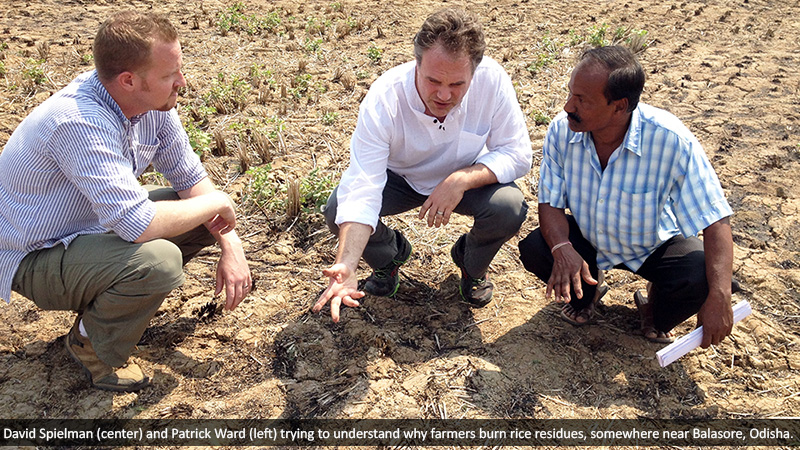CSISA Rolls Out a New Round of Field Studies

CSISA’s research team from IFPRI are deep into the design, data collection and initial analysis phases as they start work on three major studies rolling out during the kharif (monsoon) rice season. These studies will provide new insights on how farmers perceive different CSISA-supported technologies, and how these perceptions vary across different types of farmers. This helps CSISA and, more importantly, extension agencies and NGOs, to have a better understanding of what works, where and why.
The latest study will explore farmers’ valuation of – and returns to – the use of mechanical rice transplanters (MRTs) in Bihar. Another study examines farmers’ preferences for – and uptake of – new stress-tolerant rice cultivars coupled with a weather index insurance product in Odisha. Both studies take their cues from prior IFPRI studies: the former on farmers’ willingness to pay for laser land levelers in eastern Uttar Pradesh and the latter on farmers’ preferences for a similar cultivar and insurance product in Bogra, Rajshahi division, Bangladesh.
Each study combines exercises that explore respondents’ perceptions of new agricultural products and services before actually providing them. For example, the study in Bihar uses experimental games with farmers to discern differences in male and female demand for MRTs and the potential labor savings it might offer. The studies in Bogra and Odisha use similar exercises to understand how farmers perceive the probability of a drought during kharif and the costs and benefits of somehow insuring themselves against that risk, with weather index insurance and/or drought-tolerant rice varieties.
With a better sense of farmers’ preferences, these studies will then introduce novel products and services for use during the upcoming kharif season. In Bihar, selected farmers will receive (and pay for) mechanical transplanting services. In Odisha, selected farmers will receive (and pay for) a drought-tolerant rice cultivar and/or a weather index insurance policy.
At this moment, several of these experiments – accompanied by village and household surveys followed by distribution of products and services – are underway and in the field. The team is working with local partners for these studies – Gram Unnayan Karma (GUK) in Bogra, Balasore Social Service Society in Odisha, HopUp for survey management and implementation in Bihar. And with collaborators from the University of California, Davis and the University of Georgia, these studies will provide critical insights for CSISA and its wide range of stakeholders. And with these insights, IFPRI and CSISA are better able to advise policymakers on the types of policies and investments they might make to affect evidence-based solutions that encourage inclusive technological change across South Asia’s rural economy.
This article is authored by David Spielman, Senior Research Fellow, IFPRI.
